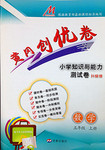题目内容
Owning a smart phone may not be as smart as you think. They may let you surf the Internet, listen to music and snap photos wherever you are… but they also turn you into a workaholic, it seems.
A study suggests that, by giving you access to emails at all times, the all-singing, all-dancing mobile phone adds as much as two hours to your working day. Researchers found that Britons work an additional 460 hours a year on average as they are able to respond to emails on their mobiles.
The study by technology retailer Pixmania reveals the average UK working day is between 9 and 10 hours, but a further two hours is spent responding to or sending work emails, or making work calls. More than 90 percent of office workers have an email-enabled phone, with a third accessing them more than 20 times a day. Almost one in ten admits spending up to three hours outside their normal working day checking work emails. Some workers confess they are on call almost 24 hours a day, with nine out of ten saying they take work emails and calls outside their normal working hours. The average time for first checking emails is between 6 am and 7 am, with more than a third checking their first email in this period, and a quarter checking them between 11 pm and midnight.
Ghadi Hobeika, marketing director of Pixmania, said, “The ability to access literally millions of apps, keep in contact via social networks and take photos and video as well as text and call has made smart phones invaluable for many people. However, there are drawbacks. Many companies expect their employees to be on call 24 hours a day, seven days a week, and smart phones mean that people literally cannot get away from work. The more constantly in contact we become, the more is expected of us in a work capacity.”
1.What can we conclude from the text?
A. All that glitters is not gold.
B. Every coin has two sides.
C. It never rains but pours.
D. It’s no good crying over spilt milk.
2.The underlined word “accessing” in the third paragraph can be replaced by .
A. calling B. reaching
C. getting D. using
3.Which of the following is true according to the text?
A. The average UK working day is between nine and twelve hours.
B. Nine-tenths spend over three hours checking work emails.
C. One fourth check their first mails between 11 pm and midnight.
D. The average time for first checking emails is between 6 am and 8 am.
4.What’s the main idea of the text?
A. Workaholics like smart phones.
B. Smart phones bring about extra work.
C. Smart phones make our live easier.
D. Employers don’t like smart phones.
1.B
2.D
3.C
4.B
【解析】
试题分析: 这篇文章主要介绍使用智能手机也许并不像你想的那样明智。使用智能手机可以让你随时随地上网、听音乐、拍照片,但也可能让你变成工作狂。最新调查显示,智能手机能让你随时查收邮件,因此这种花哨的机会让你每天的工作时间延长多达两个小时。
1.
2.
3.
4.
考点:考查新闻报道类短文阅读。

 名校联盟快乐课堂系列答案
名校联盟快乐课堂系列答案 黄冈创优卷系列答案
黄冈创优卷系列答案 thing that can take a long time, but it is possible with great effort.A few companies are starting to make moves in that direction, but efforts are half-hearted.There is no “move the Earth” panic to become an integrated company from Samsung, Google or Microsoft.
thing that can take a long time, but it is possible with great effort.A few companies are starting to make moves in that direction, but efforts are half-hearted.There is no “move the Earth” panic to become an integrated company from Samsung, Google or Microsoft. ires a degree of faith and courage.
ires a degree of faith and courage. n’t we? For me it was cutting my own hair. For a former roommate it was trying to pull
n’t we? For me it was cutting my own hair. For a former roommate it was trying to pull